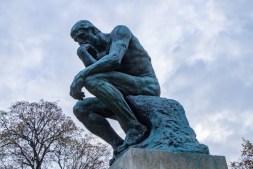Debunking Common Misconceptions About Greek Mythology
Greek mythology has fascinated people for centuries, but with its popularity comes a plethora of misconceptions. Many individuals are drawn to stories of gods and heroes, yet often misunderstand their significance and the context in which they were created. In this article, we will explore some common myths about Greek mythology and clarify the realities behind them.
Misconception 1: Greek Myths Are Just Stories for Children
One of the most pervasive misconceptions is that Greek mythology is simply a collection of fairy tales meant for children. While it’s true that many myths have been adapted for younger audiences, the original stories were rich with complex themes and moral lessons intended for adults. These tales often explored profound issues such as love, betrayal, justice, and the human condition—making them relevant to all ages.

Misconception 2: The Gods Were All-Powerful
Another common belief is that the gods in Greek mythology were all-powerful beings who could do anything they wished without consequence. In reality, even the gods had limitations and faced challenges similar to humans. They displayed jealousy, anger, and vulnerability just like mortals. For instance, Zeus himself was not infallible; he faced numerous dilemmas that tested his power and authority among both gods and humans alike.
Misconception 3: Myths Are Historically Accurate Accounts
Many people assume that myths provide accurate historical accounts of ancient Greece. However, these myths are not meant to serve as factual records but rather as allegorical tales reflecting cultural values and beliefs of the time. The stories evolved over centuries through oral tradition before being recorded in texts by famous writers such as Homer and Hesiod—often blending history with fiction in ways that serve narrative purposes rather than historical accuracy.
Misconception 4: Everyone Believed in All Gods Equally
It’s a misconception that every ancient Greek worshiped all Olympian gods equally or believed in them devoutly. Ancient Greece was comprised of diverse city-states with varying religious practices; people often focused on specific deities associated with their communities or personal lives rather than adhering strictly to a single set pantheon worshiped universally across Greece.
Misconception 5: Myths Have No Relevance Today
Finally, many believe that Greek mythology has no relevance or impact on modern society. This couldn’t be further from the truth. Themes from these ancient stories continue to resonate today—in literature, art, psychology (like Jungian archetypes), film adaptations like Marvel’s Thor series or Disney’s Hercules—all demonstrate how timeless these narratives are when addressing universal human experiences.
In conclusion, while Greek mythology can be captivating with its colorful characters and thrilling adventures, it’s essential to approach it with an understanding free from misconceptions. By recognizing these truths about myths’ complexities and their enduring influence on contemporary culture, we can appreciate them even more deeply.
This text was generated using a large language model, and select text has been reviewed and moderated for purposes such as readability.


